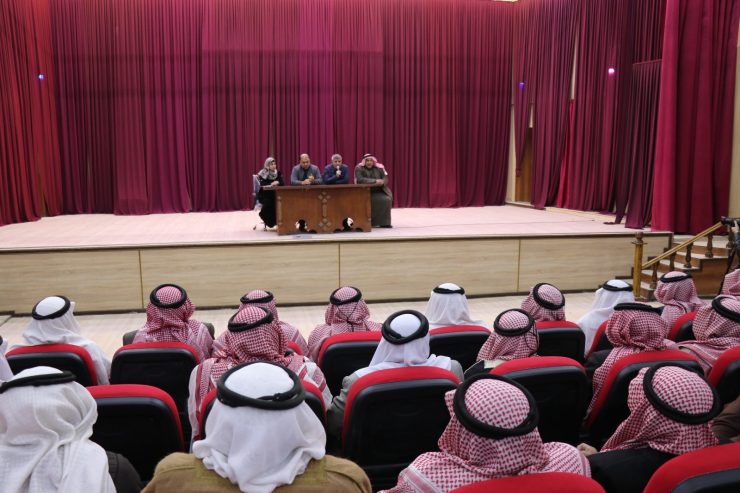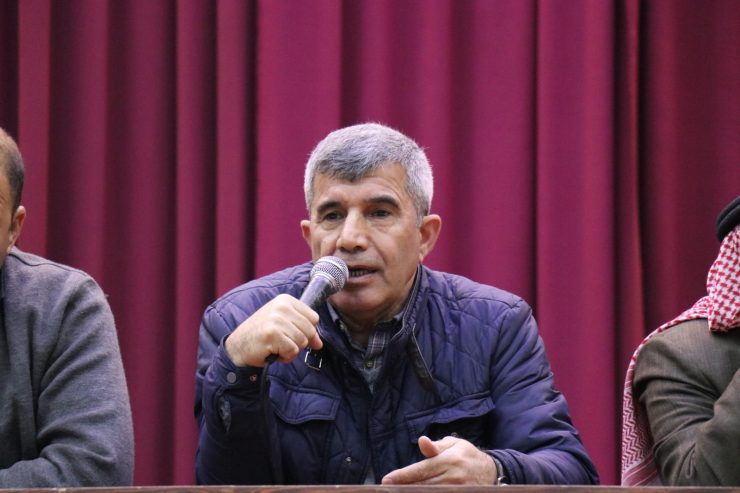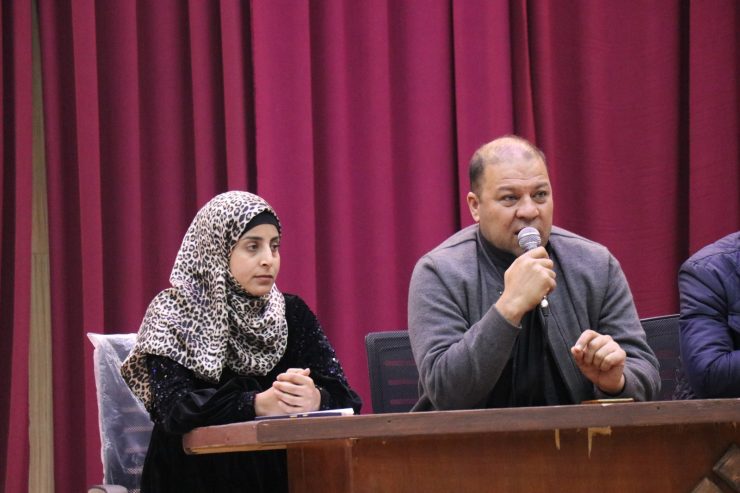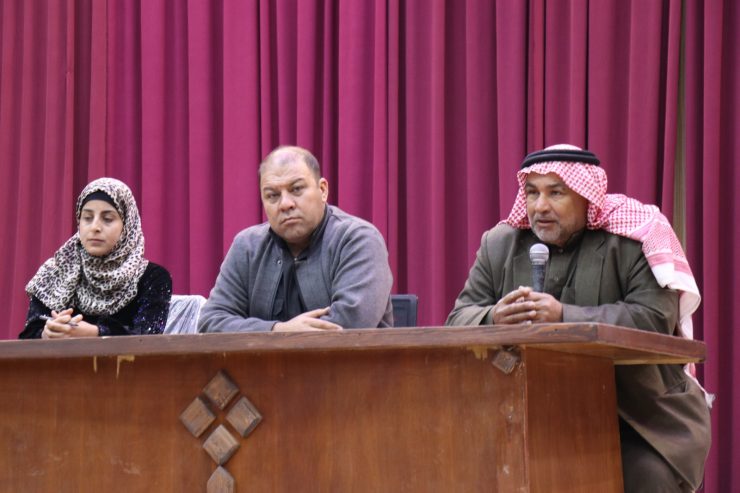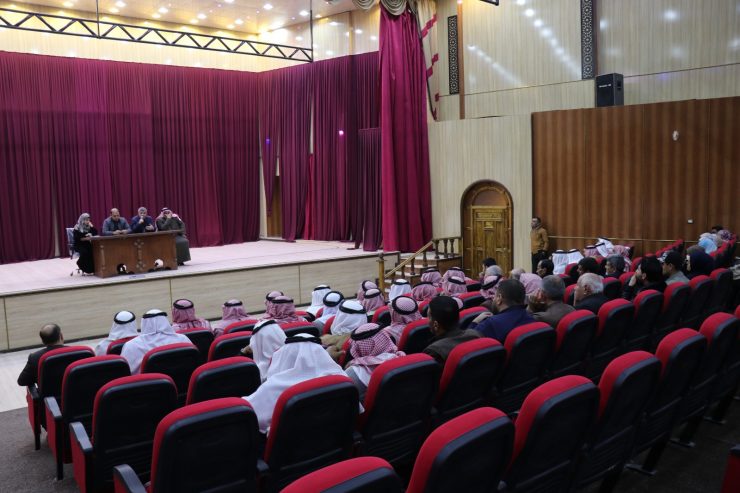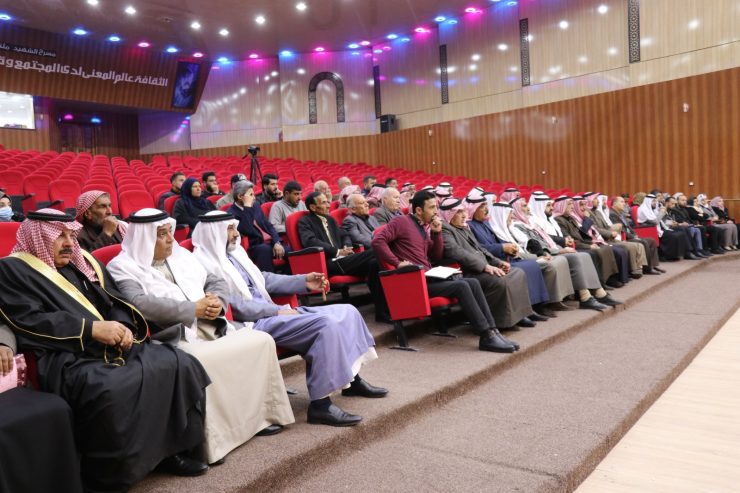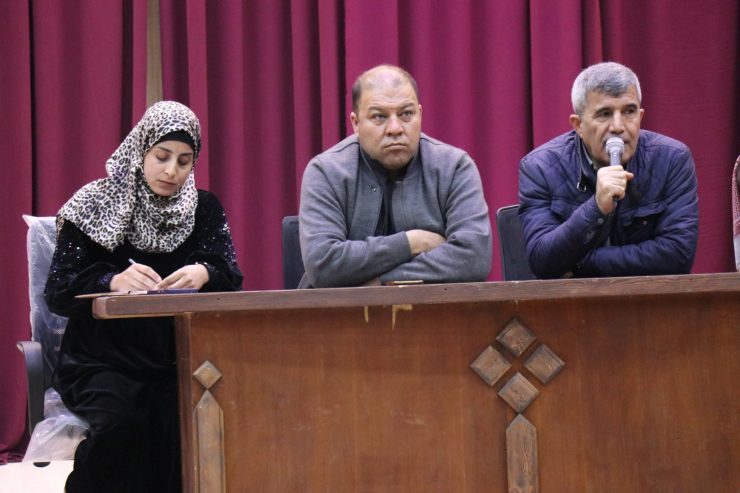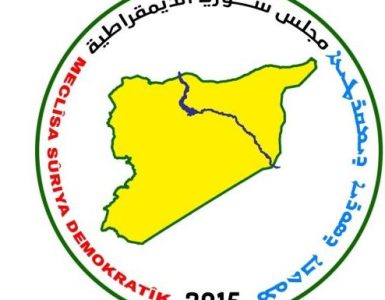The meeting called for by the Syrian Democratic Council ended, on Tuesday, at the hall of the Cultural Center, which gathered a crowd of elite figures such as tribal sheikhs and dignitaries, a group of intellectuals, politicians and administrators, in addition to a number of women figures, activists and independents in the city of Tabqa.
The meeting was moderated by Hassan Muhammad Ali, the Co-chair of the Relations Bureau of the Syrian Democratic Council, Mustafa Bali, the Chairman of Relations Bureau of the Syrian Democratic Forces, and Sheikh Hamid Al-Faraj, the Co-Chair of the Legislative Council in Tabqa.
After discussion of the latest political developments, the prospects of a resolution for the Syrian crisis, and the repercussions of the catastrophe of the earthquake that struck Syria and Turkey, the Co-Chair of the Relations Bureau touched on the need to continue with balanced policies and work on five different levels among international relations and the Arab environment, focusing on the Syrian national framework, Syrian dialogue, and communication with various powers, in addition to forming a democratic opposition front by a conference of democratic powers and figures, and the consecration of the concepts of inclusive identity and the principle of decentralization.
Regarding the administrative situation and prospects of a political resolution, Sheikh Hamed Al-Faraj, the sheikh of the Walda tribe in Raqqa and Tabqa, stated that the aim of the administration is to build a unified Syrian society that is far from tyranny and division. Sheikh continued by saying: “We hope by the Council of Notables to resolve disputes and assist the administration, and with our cohesion and agreement and the strengthening of confidence, we can expand the area and generalize this experience throughout the Syrian territories”.
In the same context, a media activist Abdullah Al-Ahmad stated that social cohesion passes through several stages, starting with each person plays his/her role, cooperates and achieves transparency between the administration and the people, and thirdly, the independence of the judiciary and the achievement of social justice.
Within the framework of the participations, Sheikh Hussein Al-Rashed, a Sheikh of the Al-Bukhamis clan, raised several questions, the first questions of which were that what are implications of the visit of the US Army Chief of Staff to the region? What about demographic change? What are the factors and foundations that prevent youth migration to the West? What about limiting the issues of the Syrian people within the media?
For his part, Sheikh Fawaz Al-Beik, a Sheikh of Al-Sakhani clan, stressed that the solution should be local and not imported, as problems are arisen and require solutions, and the suffering of the Syrian people since the beginning of the crisis until now has made everyone aspires to live under democratic rule and get rid of tyranny and extremism.
Sheikh Khalil Al-Saleh, the sheikh of Harb clan in Tabqa, also noted that safety and stability are basics for societies, so the military forces and internal security must be supported because of the importance of these two sectors in society.
Among the responses, Mustafa Bali, the official of Relations of the Syrian Democratic Forces, classified the visit of the US Army Chief of Staff to the region as a moral support and a political message to continue the partnership with the Syrian Democratic Forces.
The participations shed light on the service aspects and some proposals for the development of institutional administrative work. Finally, the meeting managers responded to the opinions and inquiries of the participants.


